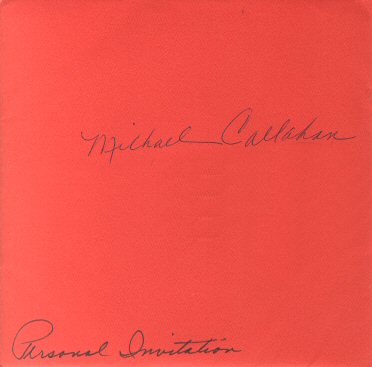
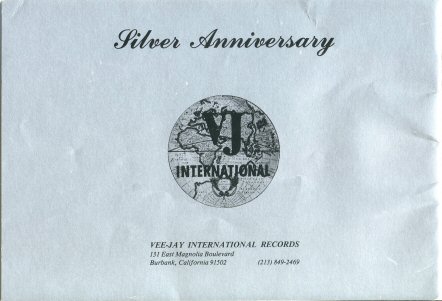
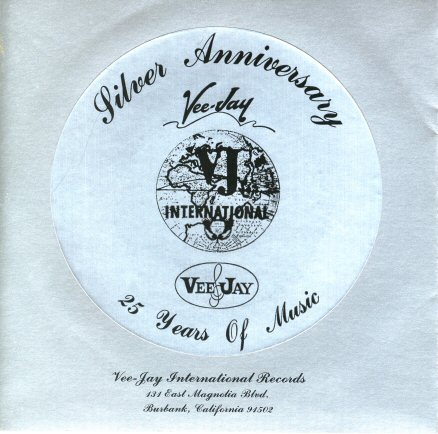
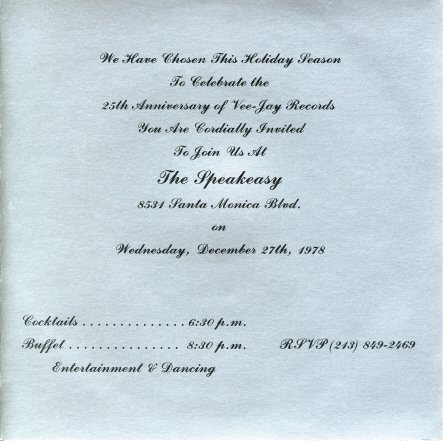
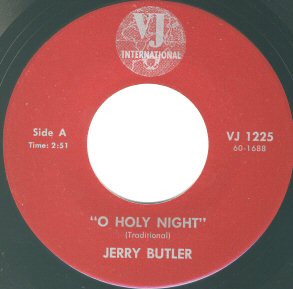
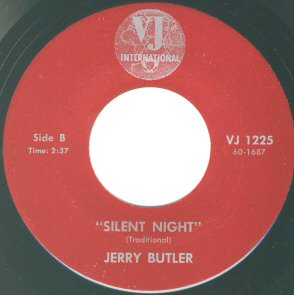
 The Vee-Jay International Story
The Vee-Jay International Story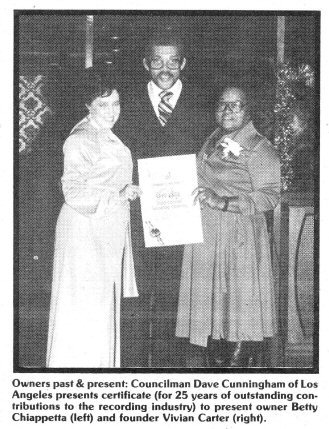 Many of the Vee Jay artists simply continued with successful recording careers. Jerry Butler, the last
artist to have a chart hit on Vee Jay, switched to Mercury, another Chicago-based label, and continued
having hits into the 1970s. Gene Chandler, who went to Constellation Records in 1963 along with
manager Bill Sheppard, had quite a few more R&B hits and a big pop hit in 1970 with "Groovy Situation."
Dee Clark's story is outlined elsewhere in this issue. Jimmy Reed went to the ABC label, where he
recorded numerous albums for their Bluesway subsidiary, but never did regain the hit momentum he
enjoyed with Vee Jay. Jimmy died a few years ago. The Dells, of course, hit it big in 1968 with "There Is"
on Chicago's Cadet label and steamrollered into the '70s with a long list of hits. Wade Flemons
reportedly was in Earth, Wind and Fire for a time, and who needs to talk about the Four Seasons or The
Beatles?
Many of the Vee Jay artists simply continued with successful recording careers. Jerry Butler, the last
artist to have a chart hit on Vee Jay, switched to Mercury, another Chicago-based label, and continued
having hits into the 1970s. Gene Chandler, who went to Constellation Records in 1963 along with
manager Bill Sheppard, had quite a few more R&B hits and a big pop hit in 1970 with "Groovy Situation."
Dee Clark's story is outlined elsewhere in this issue. Jimmy Reed went to the ABC label, where he
recorded numerous albums for their Bluesway subsidiary, but never did regain the hit momentum he
enjoyed with Vee Jay. Jimmy died a few years ago. The Dells, of course, hit it big in 1968 with "There Is"
on Chicago's Cadet label and steamrollered into the '70s with a long list of hits. Wade Flemons
reportedly was in Earth, Wind and Fire for a time, and who needs to talk about the Four Seasons or The
Beatles?
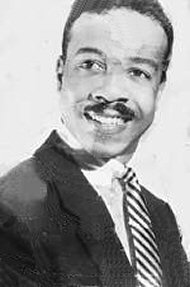 Sid McCoy still has a syndicated radio show, based in Hollywood, but has branched out very
successfully into commercials and acting. This is his 33rd year in radio, also.
Sid McCoy still has a syndicated radio show, based in Hollywood, but has branched out very
successfully into commercials and acting. This is his 33rd year in radio, also.
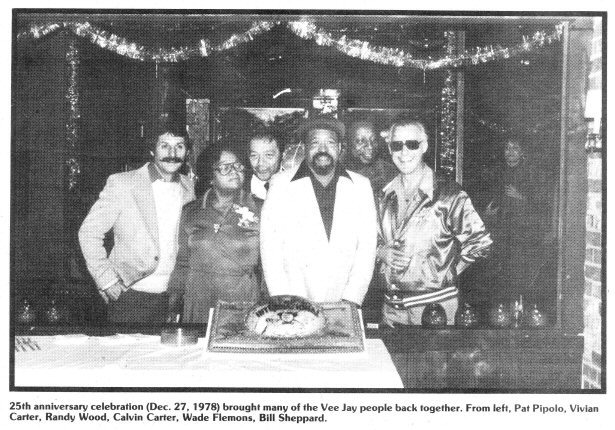 "I'm working with Betty Everett over at Twentieth Century Fox, and I'm doing some songwriting with
some people who are with RCA Victor. Other than that, I'm collecting royalties off songs I've written, so
basically, shall we say, I'm semi-retired. I expect to get active again as soon as this damned country and
western bonanza gets over. It's rough in R&B right now, but lately, I've been hearing quite a bit of the
music of the soul things of the late Sixties, the things that were on Stax, Wilson Pickett, Aretha, and so
forth. If there's going to be a new music, that may be the direction the music goes: a revival of late '60s,
uptempo soulful music. I hope there is a revival, because one thing I find that's happening now, is we're
losing black music altogether. The young blacks aren't black anymore. I get young black artists and they
come in and sound like a black guy singing like a white guy singing like a black guy. I don't understand it.
And you can't lecture them, because then they call you old-fashioned. So you've got to try to act like,
(speaking in dialect) Well, hey, man . . . and talk their language, use their vernacular, and go in and cut
these tunes you really don't believe in. After all, the artist is the boss today. Before, a producer could tell
and artist what to do, because the producer had the artist under contract. Now, the artist contracts the
producer, so the producer's at a loss, because he's got to do what the artist wants to do, whether good,
bad, or indifferent, or he's out of the game. The artist is there for the mixdown, he's there for everything.
It's almost like the artist is producing himself today. Unless you've got an artist under contract to you,
you've got to have a relationship with him that's . . . well, maybe I'm too impatient to deal with it right
now. If you get a hit with somebody these days, along comes everybody to tell you how to record them. If
you don't get a hit, Next! . . . It's almost a no win thing.
"I'm working with Betty Everett over at Twentieth Century Fox, and I'm doing some songwriting with
some people who are with RCA Victor. Other than that, I'm collecting royalties off songs I've written, so
basically, shall we say, I'm semi-retired. I expect to get active again as soon as this damned country and
western bonanza gets over. It's rough in R&B right now, but lately, I've been hearing quite a bit of the
music of the soul things of the late Sixties, the things that were on Stax, Wilson Pickett, Aretha, and so
forth. If there's going to be a new music, that may be the direction the music goes: a revival of late '60s,
uptempo soulful music. I hope there is a revival, because one thing I find that's happening now, is we're
losing black music altogether. The young blacks aren't black anymore. I get young black artists and they
come in and sound like a black guy singing like a white guy singing like a black guy. I don't understand it.
And you can't lecture them, because then they call you old-fashioned. So you've got to try to act like,
(speaking in dialect) Well, hey, man . . . and talk their language, use their vernacular, and go in and cut
these tunes you really don't believe in. After all, the artist is the boss today. Before, a producer could tell
and artist what to do, because the producer had the artist under contract. Now, the artist contracts the
producer, so the producer's at a loss, because he's got to do what the artist wants to do, whether good,
bad, or indifferent, or he's out of the game. The artist is there for the mixdown, he's there for everything.
It's almost like the artist is producing himself today. Unless you've got an artist under contract to you,
you've got to have a relationship with him that's . . . well, maybe I'm too impatient to deal with it right
now. If you get a hit with somebody these days, along comes everybody to tell you how to record them. If
you don't get a hit, Next! . . . It's almost a no win thing.
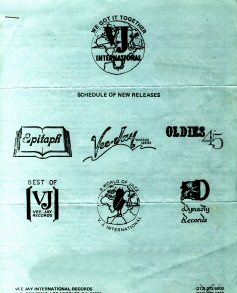 Betty Chiapetta: "The 20 Soulful Oldies records were done as a special radio package,
and were not intended to be part of the catalog. Eventually, though, they became part of the catalog
anyway. It took a long time for us to get anything out; we didn't really start trying to release anything new
until about 1975."
Betty Chiapetta: "The 20 Soulful Oldies records were done as a special radio package,
and were not intended to be part of the catalog. Eventually, though, they became part of the catalog
anyway. It took a long time for us to get anything out; we didn't really start trying to release anything new
until about 1975."
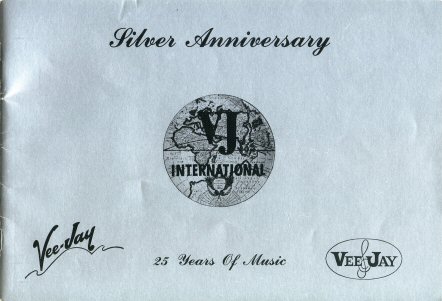 But even when the catalog came out, some of the records were not yet available. In 1978, Vee Jay
issued a Silver Anniversary catalog to commemorate the 25th birthday of the label. The catalog is an
impressive slick-paper booklet with a silver cover. Inside are pictures of many of the artists, some history
of the label, and photos of close to 200 different album covers with complete song titles listed.
But even when the catalog came out, some of the records were not yet available. In 1978, Vee Jay
issued a Silver Anniversary catalog to commemorate the 25th birthday of the label. The catalog is an
impressive slick-paper booklet with a silver cover. Inside are pictures of many of the artists, some history
of the label, and photos of close to 200 different album covers with complete song titles listed.
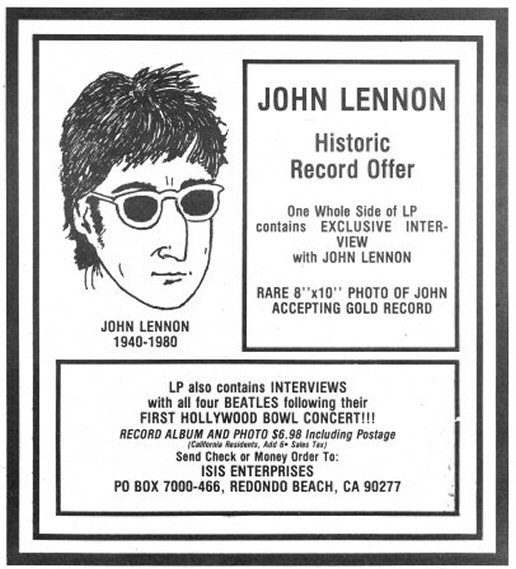 Mike Callahan: "What about Vee Jay PRO-202, Hear The Beatles Tell All?"
Mike Callahan: "What about Vee Jay PRO-202, Hear The Beatles Tell All?"
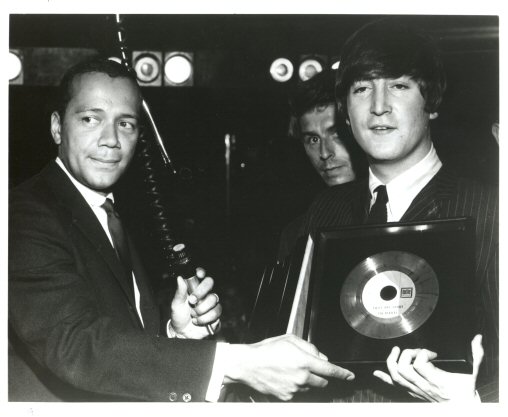 Betty Chiapetta: "Charly is our current British licensee; before that we used Dick James Music,
"This Recording Company," for overseas licensing. As a matter of fact, there's something your readers
can do for us. Some of our early masters are missing, and we're trying to locate some mint copies of
several singles so we can copy off some of the songs. We wouldn't need to keep the records, we would
just record them and send them back. We're trying to get these songs for reissues on Charly. There is a
lot of interest in the Vee Jay material over in Europe, where the collectors are familiar with all the artists
who recorded for Vee Jay. The foreign collectors are extremely knowledgeable; some of them seemingly
make a career out of finding out all that information."
Betty Chiapetta: "Charly is our current British licensee; before that we used Dick James Music,
"This Recording Company," for overseas licensing. As a matter of fact, there's something your readers
can do for us. Some of our early masters are missing, and we're trying to locate some mint copies of
several singles so we can copy off some of the songs. We wouldn't need to keep the records, we would
just record them and send them back. We're trying to get these songs for reissues on Charly. There is a
lot of interest in the Vee Jay material over in Europe, where the collectors are familiar with all the artists
who recorded for Vee Jay. The foreign collectors are extremely knowledgeable; some of them seemingly
make a career out of finding out all that information."

|

|
At far left, personal invitation envelope for the 25th Anniversary celebration, held at the Speakeasy in
Los
Angeles, December 27, 1978. At near left, the back cover of the souvenir 25th Anniversary catalog (front
cover is pictured above).
|

|

|
These are the two sides of the silver "25th Anniversary" invitation.
|

|

|
The two sides of the souvenir 45 included in the invitation to the 25th Anniversary celebration.
|
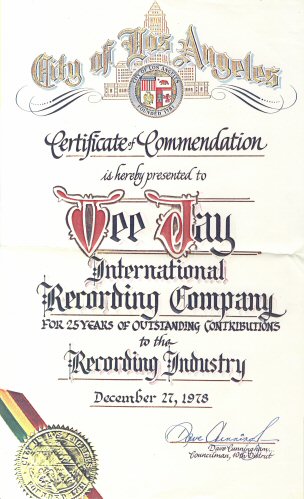
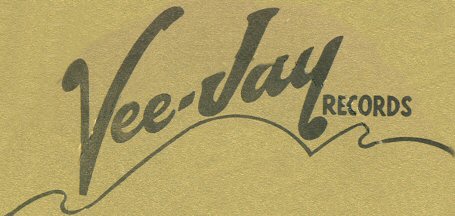 Back to the Vee-Jay Main Page
Back to the Vee-Jay Main Page  Back to the Discography Listings Page
Back to the Discography Listings Page  Back to the Both Sides Now Home Page
Back to the Both Sides Now Home Page